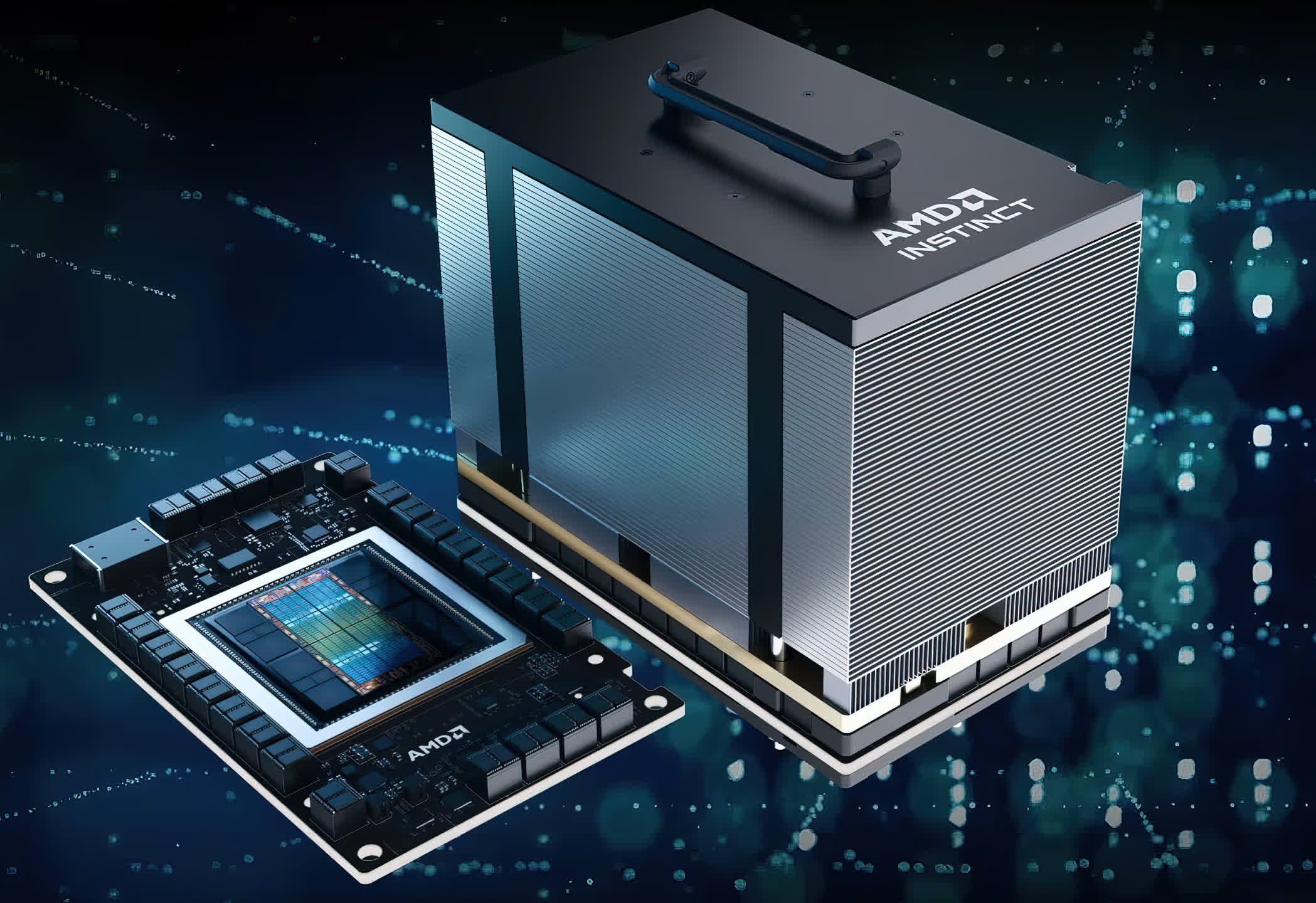In context: US restrictions on artificial intelligence chip exports to China aren't a blanket ban on the products; they just can't exceed certain specifications. Nvidia has already created slower GPUs and accelerators so it can keep shipping them to the Asian nation. Now, AMD has announced it will do the same thing.
In September last year, the US further tightened export sanctions against China by introducing rules that prohibited Nvidia and AMD from selling their high-performance AI-focused GPUs/accelerators to the country (and Russia). It meant that China could no longer import Nvidia A100 or H100 GPUs, while AMD's MI250 Instinct card is also prohibited.
In AMD's recent earnings call, company CEO Lisa Su said, "China is a very important market for us, certainly across our portfolio. As we think about certainly the accelerator market, our plan is to, of course, be fully compliant with US export controls. But we do believe there's an opportunity to develop products for our customer set in China, that is looking for AI solutions, and we'll continue to work in that direction."
Soon after the US announced the chip restrictions last year, Nvidia unveiled the A800 graphics processing unit as an alternative to the A100 GPU for customers in China. US rules state that the chips' bidirectional transfer rate must be capped at 600 GB/s, so Nvidia slashed the interconnect in the A100 from 600 GB/s to 400 GB/s to sell it in China under the A800 name. It did the same with the H100, turning it into the H800, while Intel has also released cut-down versions of its AI chips.
AMD is expected to follow other companies' lead and develop alternate versions of its chips for the Chinese market, likely starting with the Instinct MI300X arriving later this year.
Desperation in China to secure the more powerful Nvidia AI products has resulted in the creation of a black market where they sell for thousands of dollars. A100 cards often go for around $20,000, double their usual MSRP.
AMD might be wise to wait before developing a China-specific AI product given that the US is considering further restrictions on the export of artificial intelligence chips to the country. Team green has warned against any future tightening of export controls, saying such a move would hurt its future growth and result in a permanent loss of opportunities for US industry to compete and lead in China.

